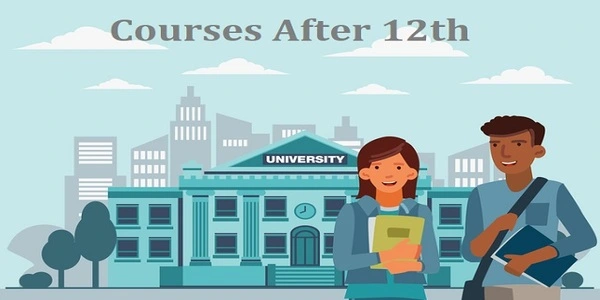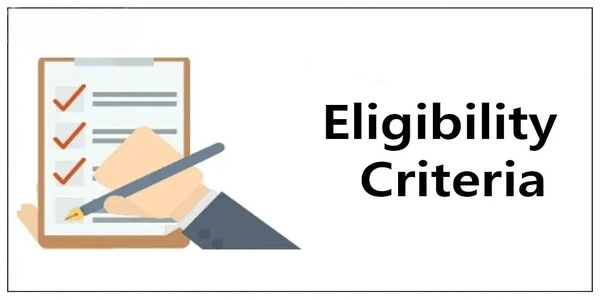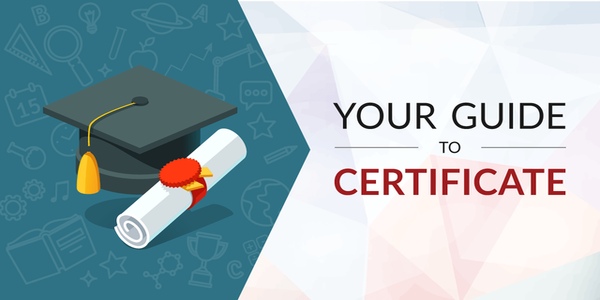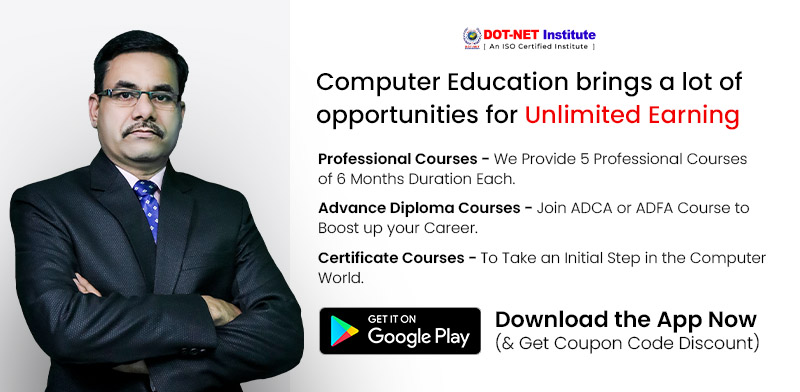What to do after the 12th degree, diploma, or certificate course, do you know why it’s essential to career plan after the 12th because you know that everyone got aware of their interest and matures enough to take the right decision when they pass out the 12th.
Contents
Introduction
After completing a 12th there are several existing options of degree, diploma, or certificate course. You can choose any option for further education and advancement.
Enrolling yourself in any good course in your interest-related field can provide more specialized knowledge and skills that can lead to better job opportunities and higher salaries. Students apply to professional development programs to get theoretical knowledge as well as enhance their skills and knowledge in specific areas. It will help them to get the experience of real the professional world to build their professional network.
Therefore, it is necessary to go through the topic of ‘What to do after the 12th degree, diploma, or certificate course.
What will you get in this topic?
Introduction
What to do after 12th degree, diploma, or certificate course
Why Degree?
Why Diploma?
Why Certificate?
How to choose what to do after 12th degree, diploma, or certificate course:

When you come to this point that ‘How to choose a right Career Path then follow these points:
- First important thing is to understanding your interests and strengths
- Do proper research of various career options
- Seek advice from professionals of related field
- Explore related industries to update the in-demand skills
What are the options of degree, diploma, or certificate course after the 12th?
Before choosing between degree, diploma, or certificate courses you need to understand:
Understanding the differences among programs:

For professional development, there are a variety of options of degree, diploma, and certificate courses. But let’s understand the difference in these courses:
Degree programs typically require more time than diploma and certificate programs, and they often offer a broader range of syllabi in related fields. Therefore degree courses are best if you are a student who wants to start his career path
Diploma programs help in more focused on specific job skills or in-demand skills for firms.
Certificate programs can provide quick and targeted training in specific areas and certificate courses are helpful for the professional to add extra skills to speed up their workload and they get a chance for promotions.
The decision between pursuing a degree, diploma, or certificate will depend on individual career goals and personal circumstances. Degree courses are seen as more prestigious than diplomas or certificates because it has more opportunities but its depending on the industry and job requirements. Therefore, choosing the options of degree, diploma, or certificate course after the 12th is totally depend on once necessity.
Know about admission criteria and requirements:

Taking a decision for your career is important thus you need to know the admission criteria and requirements of a degree, diploma, or certificate course after the 12th.
For the degree courses universities and colleges look for candidates who have scored a favourable percentage in their 12th exams as per the stream or degree they wanted to appear in. Additionally, some colleges may also require students to clear entrance exams or take part in personal interviews prior to being admitted. The specific criteria may vary depending on the course and institution that you’re applying to and clearing entrance exams to applicable scores will get you in.
For the diploma courses usually the admission criteria and requirements is that the student must have completed their 10th or 12th standard from a recognized board. However, certain diploma programs may require specific subject minimum marks in previous exams. Some institutes also consider entrance exams or interviews as part of their selection process. It’s important to research about the requirements for the specific diploma course you’re interested in pursuing.
To get a certificate course you’ll need high school or obtain a recognized equivalent qualification. Some programs may also require specific courses or grades in relevant subjects, so make sure to check with the institution offering the course. Also, some institutions may demand other documentation of the previous education.
Just remember that certificate course often depends on factors like academic performance and relevant work experience. Therefore if you want to choose any course to build your career then a certificate course is not a more worthy option for you as compared to a degree and diploma course.
Why certificate courses?
Each course has its own value when you will take an overview then you will able to take the right decision that which course you have to choose
What is a certificate course?

Certificate courses are a great way to boost knowledge and skills in a particular field in a short duration. They provide a succinct overview of the subject matter, often focusing on key practical skills that you can apply in your everyday work or personal life. Certificate programs are mostly short-term courses than degrees and diploma courses. These are more flexible thus you can do them as per your time schedule.
Benefits of pursuing a certificate course
- The best part of a certificate course is it will learn in a short duration and that is a great deal for professionals
- The certificate course is the best way to gain the required skills and knowledge in a particular field, without binding yourself to a longer degree course.
- Many certificate courses are being offered online thus you can learn them even with busy schedules
- With certificate courses, professionals get training and practical experience specific to the industry which could lead to better job opportunities or promotions.
- Certificate programs are more affordable in comparison to degree and diploma courses.
- Certificate programs are a great way to pursue your hobby
Different certificate courses available in different fields
There are countless certificate courses available in various fields, to achieve the career goals of individuals. Such as healthcare, finance, designing, technology, etc.
- Certified Financial Planner (CFP)
- Certified Nursing Assistant (CNA)
- Cisco Certified Network Associate (CCNA)
- Project Management Professional (PMP)
- HR Certificate Program
- Graphic designing certifications course in Photoshop, Illustrator, or InDesign
- IT professionals certificate courses in programming languages like Java, Python, or C++
Tips for job search in certificate courses:
- Make sure your resume and cover letter highlight the specific skills you gained from your certificate program.
- Use your network like your professors, classmates, and coaches for references
- Attend job fairs or industry events related to your field
- Make your networking on social media platforms like LinkedIn.
- Start in an entry-level role that allows you to gain practical experience
- With these tips, you can find the right job opportunity for you after your certificate course.
Job opportunities after certificate courses
- Job opportunities after the certificate course can give the job of an assistant if you are a fresher or trainee but there is a lucrative option for professionals as they can get promotions and good increments after the certificate course. As per the certificate course you can apply for:
- Medical assistants
- Nurses
- Web developer
- Graphic designers
- Web designers
- Security analysts
- Healthcare administrative
- And more
Why diploma courses?
- Learning diploma courses can be beneficial as compare to short-term courses
- Diploma courses mean doing real-world projects and gaining experience to help in your career.
- Learning diploma courses level up your qualifications and increase your chances of securing employment in the field you pursued a diploma.
- Most diploma courses are shorter than traditional degree courses, which means you can start applying your skills sooner.
- Many firms prefer to hire candidates who have completed diploma programs to provide the chance to candidate to show dedication to their field of study and a desire for continuous improvement.
What is diploma course?

Diploma courses mean fewer duration courses designed to provide knowledge and skills in a particular field that help the candidates to start earning soon. A Diploma is a short term course of 6th month, 1 and 2 years in a specific field and the diploma course are issued by any educational institution.
Diploma courses are available in digital marketing, healthcare, website development, designing, and more. You can choose as per your skill and interest.
Benefits of pursuing a diploma course
- Short-term courses to prepare for specific industries or jobs
- Anyone can start diploma courses immediately and start earning.
- These courses help to gain practical skills that are necessary for the industry
- With a short duration, diploma courses are less expensive in comparison to degree courses
- There are a variety of diploma courses available in various fields easily nearby your locality as many private and government-based institutions provide these courses.
- Diploma courses provide specialized training and education to students for sooner earning.
Different diploma courses available in different fields
There are many diploma courses available in different fields such as:
Accounting
Management
Marketing
Human resources
Healthcare sector
Computer science
Software engineering
Graphic design
Fashion design, and more
Job opportunities after diploma courses
- Medical assistants
- Front office executive
- Accountant
- Digital marketer
- SEO specialist
- Lab technicians
- Web developers
- Network administrators
- Project coordinator
- Site supervisor
Why degree courses?
With degree courses, you start a proper career and make yourself ready for endless opportunities in both your personal and professional life. You get specialized knowledge that can lead to improved job prospects. Degree courses provide the syllabus with theory and practical skills from experts in their field.
The best part of degree courses is that each course is internationally recognized and respected by employers worldwide. In today’s competitive job market possessing a degree is a term for applying for certain positions. At the last, the importance of degree courses is for those looking to take their career to the next level.
What is degree course?

A degree course is essentially a program of study offered by universities or colleges that leads to the awarding of a degree upon completion. These courses typically cover a particular subject area, such as business, engineering, education, or humanities, and can last anywhere from 1-3 years
Degree courses generally involve a combination of lectures, seminars, independent research, exams, and assignments. The curriculum usually includes both core and elective courses which are designed to equip students with the knowledge and skills needed to succeed in their chosen career path. Depending on the institution and the type of degree course chosen, there may be specific entry requirements that need to be met before one can enroll.
Benefits of pursuing a degree course
- A degree course can be more beneficial for individuals in multiple aspects of their lives.
- A degree can open a path of more career opportunities and allow candidates to get success soon.
- Degree course provides essential skills such as time management, communication skill, critical thinking, and problem-solving skills.
- The degree provides an opportunity for individuals to fulfill their dream with their personal interests.
Different degree courses available in different fields
- BBA- Bachelor of Business Administration.
- BMS- Bachelor of Management Science.
- BFA- Bachelor of Fine Arts.
- BEM- Bachelor of Event Management.
- Integrated Law Course- BA + LL.B.
- BFD- Bachelor of Fashion Designing.
- BSW- Bachelor of Social Work.
Job opportunities after degree courses
- Software Developer
- Business Analysts
- Data Scientist
- Digital Marketing
- Manager with MBA
- Human Resources Specialist
Also check:
-
How Startups Benefit from Integrated Accounting and Banking Tools
-
Compliance and Security in E-Accounting and E-Banking?
-
Blog Writing vs. Social Media Writing: What's the Difference?
-
5 Best Computer Course in India for Private Job (India में प्राइवेट नौकरी के लिए 05 BEST कंप्यूटर कोर्स)
-
Google jobs in India | Google में चाहिए नौकरी तो कर ये 5 कोर्स - मिलेगा लाखों का पैकेज | Google Jobs
Conclusion
Above is the complete details about the topic ‘What to do after 12th degree, diploma, or certificate course. I had explained in the topic about the difference between degree, diploma, and certificate courses. Please go through the topic carefully to get the details about what is degree, diploma, and certificate course, benefits and job opportunities after completion of the 12th degree, diploma, and certificate course. The importance of planning before choosing a career path leads to a successful career, and you live a happy and fulfilled life.
FAQs
Each course has its importance as per the need and interests of the students. Therefore you can do a diploma or degree or certificate course as per your interest.
You can do any diploma or degree course after the 12th by fulfilling the requirement of the course you had chosen.
Yes, you can do a certificate course after 12th


